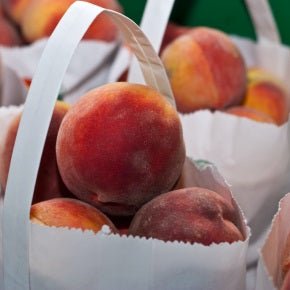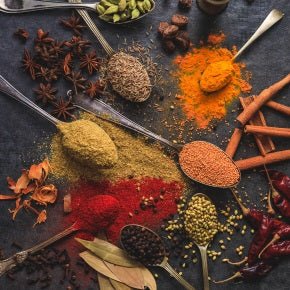So many fruits and vegetables go underappreciated for their impressive nutrient profile. This week’s Nutrition news article covers the latest research that really highlights how we can be supporting our health through the addition of simple food items.
Read in full here.
The health benefits of peaches
Peaches are a small, juicy fruit from the peach tree, a member of the rose family. Although popular around the world, few people will be aware of just how many health benefits peaches offer.
Peaches are packed with nutrients that support the body in normal daily processes and contain significant amounts of six key vitamins and minerals according to this recent article. One large peach contains:
- 6% of the Daily Value (DV) of vitamin A
- 10% DV of vitamin C
- 11% DV of niacin
- 6% DV of potassium
- 19% DV of copper
- 4% DV of magnesium
The vitamin A content supports normal eye health and skin health, whilst the vitamin C content supports the immune system. In addition to these important vitamins and minerals, peaches contain a mix of antioxidant and anti-inflammatory plant compounds support health through protecting the body against free radical damage.
The fibre content of peaches, which can be as much as 3.38 grams per single peach, supports healthy digestion whilst this fibre and their high water content also supports healthy weight management.
With so many health supporting benefits, peaches are a great snack option.
The link between diet hair health
Our hair is often such an intrinsic part of our sense of self that it is only natural to be concerned if the health of our hair deteriorates. What many people do not realise is that, besides stress, our diet plays a significant role in the health and maintenance of our hair. From foods that support healthy hair to foods that negatively impact it, there is a lot to consider and this article by Medical News Today runs through some of the lesser-known facts.
While the research is limited, there are a number of food types that could negatively impact hair health; one such food group is simple carbohydrates. It’s thought that simple carbohydrates, such as cakes, biscuits, with bread, and white rice, increase sebum production leading to excessive amounts that can cause inflammation.
Foods that promote hair health and growth, however, include protein sources such as yoghurt, poultry, and beans whose amino acids are necessary for hair growth. Unsaturated fats, such as those found in fatty fish, hydrate the hair, whilst iron deficiency could cause hair loss and vitamin C deficiency could negatively affect the creation of hair shafts. The B vitamin folate stimulates the rebuilding of hair and biotin and niacin are necessary for hair growth and health.
Lifestyle factors such as quitting smoking and not using hair damaging products are important for maintaining healthy hair but nutrition can play an instrumental part in keeping a full head of healthy hair.
The best food sources of vitamin K
Vitamin K is an essential vitamin that is often forgotten about. However, it is really important for blood clotting and the maintenance of normal bones, which is why it is included in our Vitamin D3 and K2 capsules as vitamin D increases the levels of calcium whilst vitamin K2 supports bone health by depositing that calcium into the bones. This recent article covers some of the best food sources of vitamin K.
Importantly, the article distinguishes between vitamin k1, which is found in dark, leafy vegetables, and vitamin K2, which is obtained through some animal products and fermented foods.
The best dietary sources of vitamin K include:
- Kale
- Collard greens
- Swiss chard
- Spinach
- Broccoli
- Brussel sprouts
- Romaine lettuce
- Parsley
- Prunes
- Soybean oil
Given that vitamin K plays a crucial role in blood clotting, it is important to discuss with your healthcare practitioner if you are on any medication where sudden dietary increases in vitamin K may interfere with it.
Share your thoughts
Agree with the findings in this week’s Nutrition News? Share your thoughts with us on Facebook and Twitter.
 Alison is the Founder of Metabolics who writes about Metabolics updates, events and natural healthcare. Her experience and passion for natural supplements and healthcare comes from her years of experience as a practising osteopath, having founded Metabolics in her search for high quality, natural products in her own work. Alison has been a qualified and practising Osteopath since 1981 and regularly gives seminars on a range of healthcare subjects to the wider practitioner community helping share her knowledge and experience.
Alison is the Founder of Metabolics who writes about Metabolics updates, events and natural healthcare. Her experience and passion for natural supplements and healthcare comes from her years of experience as a practising osteopath, having founded Metabolics in her search for high quality, natural products in her own work. Alison has been a qualified and practising Osteopath since 1981 and regularly gives seminars on a range of healthcare subjects to the wider practitioner community helping share her knowledge and experience.




